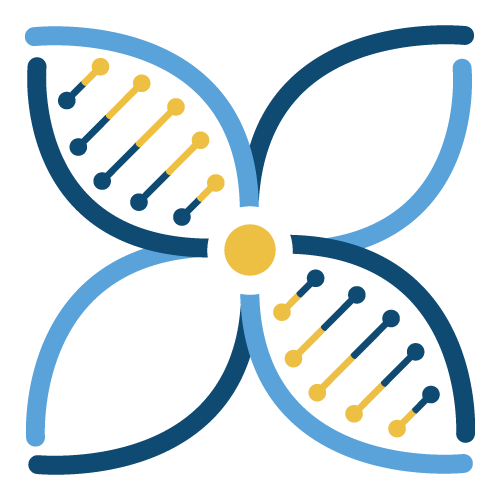Research & Clinical Information
Patient-Centered Research Strategy

Our Research Strategy
(2024–2026)
The Bloom Syndrome Association’s research strategy is built with—and for—our community. It aligns families, clinicians, and scientists around a shared plan to improve everyday care, build the evidence base, and speed the path to effective treatments and, ultimately, a cure for Bloom syndrome.
This framework is called the SECURE Strategy, reflecting our goals to:
- Be Safe
- Find Effective Treatments
- Communicate and Collaborate
- Understand Bloom Syndrome
- Recruit Participants
- Engage Actively in Research & Fundraising
The Strategy at a Glance
We are working toward three main outcomes:
- Better care through expert guidance, coordinated clinical care, and community resources
- Treatments that address the underlying biology of Bloom syndrome and the cancers that develop with it
- Ultimately, a cure through investment in cutting-edge research such as gene therapy and genome editing
Key initiatives include:
- International Bloom Syndrome Registry (IBSR): A global, patient-owned registry capturing health, treatment, and quality-of-life information
- Hesch Hope Project – Virtual Tumor Board: Expert case reviews to guide complex care, named in memory of Jason Hesch
- Seed Research Funding: Providing early support for high-impact projects aligned with our strategy, to generate data and accelerate progress
- Centers of Excellence: A global network of partner clinics providing coordinated, evidence-based care
- Community Resources: Updated patient & family handbook, health maintenance information, and webinars co-created with the community
What This Means for Families
- Your voice matters. The strategy was shaped with input from the community and continues to evolve with your feedback.
- Coming soon: International Bloom Syndrome Registry (IBSR). A secure registry where Bloom families can choose how they share their stories to advance research.
- Coming soon: Access expert support. Your care team will be able to request a Virtual Tumor Board review through the BSA (with your permission).
- Find care. We are building a network of Centers of Excellence to bring expert care closer to home.
- Stay informed. Families will have access to practical resources, webinars, and community-driven health information.
What This Means for Researchers
- Registry access. The International Bloom Syndrome Registry (IBSR) is being designed with strong governance and privacy protections. In the future, de-identified data may be shared with qualified researchers under oversight of the Registry Advisory Board.
- Seed funding. Researchers can apply for early-stage funding to test new ideas, generate proof-of-concept data, or build tools/models that advance Bloom syndrome research.
- Standards and data quality. We are harmonizing common data elements, clinician-reported outcomes, and genomic data where available.
- Collaborative opportunities. Researchers can contribute expertise to tumor boards, propose studies for funding, and access resources to accelerate translational work.
- Transparency. We expect timely sharing of results (preprints, publications) and return of findings in plain language to the community.
Read the Full Patient-Centered Research Strategy
The complete Patient-Centered Research Strategy provides the framework guiding all of BSA’s research-related activities. It was developed by the BSA Research Council with input from patients, families, clinicians, researchers, and rare disease advocates.
The full document:
- Clarifies BSA’s research priorities, grounded in the lived experiences and needs of the Bloom syndrome community
- Defines “Deliverables” for our first two-year term of the Research Council, ensuring accountability and transparency
- Provides guidance for selecting, funding, and evaluating research projects, collaborations, and partnerships
- Engages stakeholders across sectors—from academia to industry to policymakers and regulators
📄 Download the Full Strategy Document (PDF)
For questions, please contact research@bloomsyndromeassociation.org.
